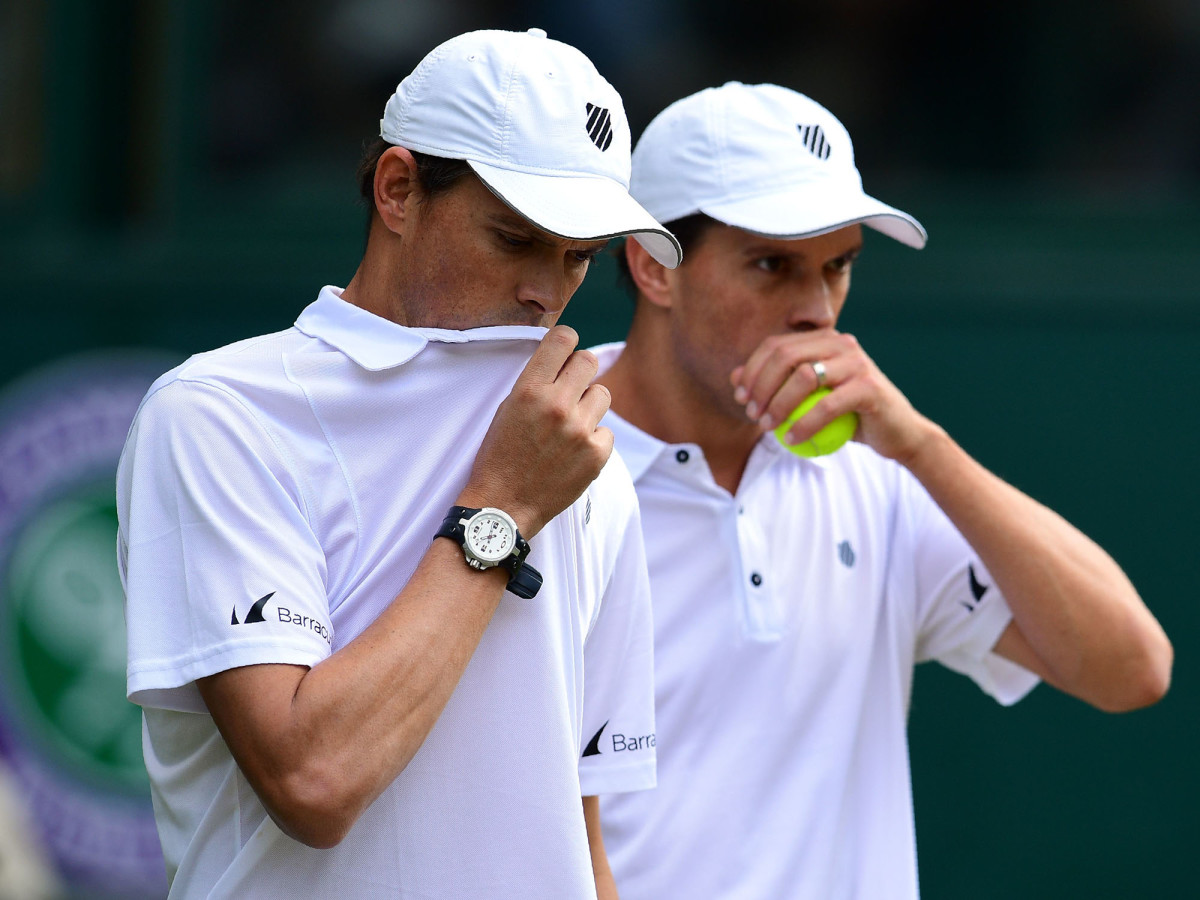Bob and Mike Bryan shift focus to U.S. Open as they adjust to separate lives

Twins Bob and Mike Bryan were eyeing a gold medal win in Rio as a chance to walk away on top. Now that focus has turned to the U.S. Open, as the storied doubles team has announced they will skip the Summer Olympics, citing concerns for their health.
“If we do something great and win Rio, we will probably sit down,” Mike said in July before deciding to skip the Games. “Every athlete dreams of going out hitting the buzzer-beater."
Now, as the Bryans have chosen to not defend their London 2012 gold medal in Rio, that buzzer-beater could come in the U.S. Open.
Bryan brothers withdraw from Rio Olympics, cite health concerns
The Bryan brothers admit that putting a finishing line on one of the most storied doubles careers of all time ratcheted up pressure, so the idea of playing through this year and into next year has a strong allure. “It feels better to not have a finish line,” Mike says. “It is tough going in and saying this is our last. You think about things a little more. It is better just to say ‘we’ll come back next year and have a better shot.’”
As the brothers, age 38, contemplate retiring, they don’t want it to take over their mindset. “We don’t want to limp out of our careers,” Bob says. “We want to blast our way out as champions. We are working just as hard now as we ever have. We are not saying this is the last year, we are still going hard.”
The limping refers to a struggle the brothers have had in 2015 and 2016, having not won a Grand Slam title since the 2014 U.S. Open. Certainly 2015 wasn’t a year to remember with more early-round losses than finals. And 2016 didn’t start well, either.
• Olympic tennis preview: Top stars chase gold in Rio
“I thought we had maybe a tough period for a few minutes at the end of last year trying to find motivation,” Mike says. Bob's wife was having a baby, the duo was touring Asia and the brothers were living far apart, with one in California and one in Florida.
“Twin energy is weird,” Mike says. “When we are clicking and everything is strong, it feels like no one can touch us. But it is a double-edge sword. When we lose a few matches, it can go a little sour because we take jabs at each other because we have the competitive twin thing. Right now it is good.”
Mike says the pair had to “recalibrate goals” after struggles during the season. “We were making sure we were hungry and we had to make our energy strong together,” he says. “Right now we are in a good place. We are keeping those goals fresh and I don’t think we are slowing down.”
Still, though, the pair has had to adjust to a new way of training and a lifestyle change. The brothers used to live together and whenever one wanted to hit the ball around, all they had to do was knock on a door. Now living on totally opposite coasts, their worlds don’t collide as they once did.
“We used to do everything together,” Mike says. “Breakfast, lunch, movies, [jamming to] music. Now whenever we are done tennis we go our separate ways. It took time to adjust to that. Twins are so tight and we have been a package deal since day one. Now we have matured and moved on. Life changed.”

As the two get ready for tournaments, preparation includes physical training and mental prep, such as watching film with coaches and ironing out multiple game plans. The brothers work on quickness and reaction time, something they have started to incorporate into their workouts even more. They have also spent quite a bit of time recently getting in and out of stances quickly, reacting out of the squat position and working on forward and backward movements.
“Doubles is about picking up objects fast,” Mike says. “Singles you work on cardio and endurance, doubles it is about fast-twitch reflexes. A lot is how quickly the eye recognizes where the ball is going."
Mailbag: Will Roger Federer's rest and rehab extend—or end—his career?
When the Bryan brothers do stop the training and touring grind, they plan on still enjoying the game. “It will be nice to go back to the Slams without the war paint on and the blanket of stress where you can really enjoy the spectacle,” Bob says. “They are amazing sites and there is so much energy at those places that you take for granted when you have blinders on.”
Mike says he’s looking forward to absorbing all the slams, but especially the grass of Wimbledon, where he hopes to become a member one day.
But that day of looking at a Grand Slam as a spectator may remain in the future. Or it may come in September, following a potential U.S. Open victory. Either way, not having a finish line makes it all that much easier for the Bryan brothers.
Tim Newcomb covers sports aesthetics—stadiums to sneakers—and training for Sports Illustrated. Follow him on Twitter at @tdnewcomb.
